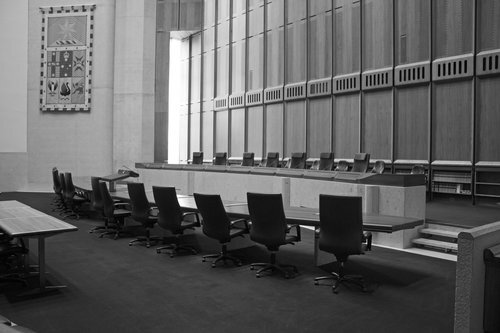
Law Blog
My blog features case notes and commentary about developments in corporate and commercial law, focusing on key decisions of the courts in both state and federal jurisdictions.
Click here to subscribe to my blog and receive an email whenever I write a new post.
What do you know about the rule in 'Jones v Dunkel'?
Practitioners may be aware of the ‘rule in Jones v Dunkel’ and the way this can impact the decision to call witnesses at trial. Practitioners might not be aware, however, of the intricacies of the rule and the way it ought be applied. A recent decision of the Supreme Court provides a useful caption of the rule and its relevant principles.
When the distinction between debt and damages can make all the difference
Among the more common forms of relief sought in civil litigation are claims for payment of debt and claims for damages. While these are distinct remedies with their own elements, they are at times liable to be conflated or confused. The decision of the Victorian Court of Appeal in Yang v Finder Earth Pty Ltd [2019] VSCA 22 illustrates how both the pleading of a cause of action and the framing of the relief sought can affect a party’s procedural rights. The decision serves as a reminder of the importance of clear and thoughtful pleading when formulating claims.
The tort of conversion: a need for legislative reform?
Where the owner of goods gives possession to a bailee and the bailee then wrongfully pledges the goods to a third party, is that third party liable to the owner for conversion of the goods? Will mere possession and control of the goods suffice to establish conversion, or is something more required? The Court of Appeal in Sell Your Gold Pty Ltd v Australian Diamond Trading Corporation Pty Ltd [2018] VSCA 355 considered those questions and, in doing so, raised concerns about the lack of clarity in the law and the pressing need for legislative reform.
Got a hunch? Navigating the rules of preliminary discovery
The rules of most Victorian courts permit a party, in certain circumstances, to obtain discovery of material prior to commencing proceedings. This is especially vital in assisting a party to ascertain who, or by what cause of action, it can sue. Like many rule-based tests, there can be some confusion about the requirements, as well as the discretionary factors, for obtaining preliminary discovery. The Supreme Court in a recent appeal decision in Alex Fraser Pty Ltd v Minister for Planning [2018] VSC 391 has shed some light.
Take care not to waive privilege when pleading your case
Legal professional privilege provides vital protection to communications passing between lawyer and client. It is no surprise, then, that the issue of waiver of privilege is often hotly contested. In a recent decision, the Victorian Court of Appeal considered whether the way a party had pleaded its case had resulted in an implied waiver of privilege. The Court’s decision provides a useful analysis of the law relating to waiver and the potential circumstances in which a pleading can give things away.
When enforcing a contract, what does it mean to be ‘ready, willing and able’ to perform your side of the bargain?
Where a party seeks to rely on another’s repudiation of a contract as a basis for suing, that party must show it has been ready, willing and able to comply with the contract. Matters can be complicated where the parties clearly disagree about how to interpret and comply with the contract, and even more so where the contract expressly requires the parties to use their best endeavours to see the contract fulfilled. The Court of Appeal in its recent decision in Bisognin v Hera Project Pty Ltd [2018] VSCA 93 has tackled these kinds of issues.
Breach of contract: can you sue for the distress and inconvenience?
Where there has been a breach of contract, in what circumstances can the innocent party sue for damages for distress, anxiety and depression arising from the breach? What about the inconvenience caused by the breach? The Court of Appeal in the recent case of Archibald v Powlett [2017] VSCA 259 sheds some light on these issues.
Actions for recovery of land: the Court of Appeal on constructive trusts and limitation periods
Where seeking to recover land on the basis of a constructive trust arising from proprietary estoppel, when does that constructive trust arise? Does it arise when a court makes a declaration to its effect, or when the relevant cause of action accrues? And should the court consider a lesser remedy instead of declaring a trust? The Court of Appeal in McNab v Graham [2017] VSCA 352 answers those questions.
Breach of contract: quantifying damages for a lost opportunity to ... lose money?
Where there has been a breach of contract, the innocent party can sue for damages including, where relevant, damages for the lost opportunity under the contract. In Principal Properties Pty Ltd v Brisbane Broncos Leagues Club Limited [2017] QCA 254, the Queensland Court of Appeal has considered a scenario where the opportunity to earn a profit under the contract was affected by various contingencies and where there might ultimately have been a loss instead. The Court has addressed the question of law, namely, whether an innocent party to a breach of contract can suffer a compensable loss even where, had the contract proceeded, that party might have lost money.
Contractual offer and acceptance: when can an exchange of emails be enough?
It is elementary to the law of contract that a binding contract requires an offer and acceptance of that offer by the respective parties. In the recent decision in Queensland Phosphate Pty Ltd v Korda [2017] VSCA 269, the task for the Court of Appeal was to determine whether, on the facts, such qualities existed in light of an exchange of emails. The Court’s decision serves as a reminder of the importance, when seeking to create a binding contract through informal means, of not leaving too much to guess-work.
Going behind court judgments in bankruptcy proceedings: the High Court’s consideration
In Ramsay Health Care Australia Pty Ltd v Compton [2017] HCA 28, the High Court has affirmed the position that a court’s discretion to go behind a judgment is not restricted to situations of fraud, collusion or a miscarriage of justice occurring at trial. In doing so, the majority was mindful of the importance of protecting in bankruptcy proceedings the interests of third parties — particularly other creditors — who do not participate in the trial and who later seek to rely on the bona fides of a judgment debt when a sequestration order is made.
Enforcing an equitable charge against a bankrupt
The Full Court of the Federal Court has recently clarified the law regarding the ability of a secured creditor of a bankrupt estate to commence proceedings against the bankrupt pursuant to the Bankruptcy Act 1966 (Cth). In Morris Finance Ltd v Brown [2017] FCAFC 516 the Full Court considered the provisions of the Act and held that, as an exception to the general rule that a creditor requires leave of a court to bring a claim for a provable debt against a bankrupt, proceedings to enforce an equitable charge do not require leave.











